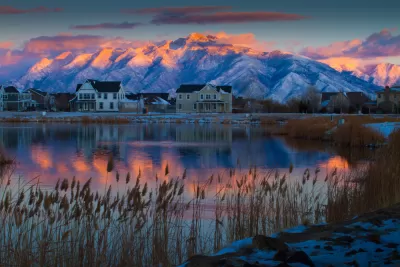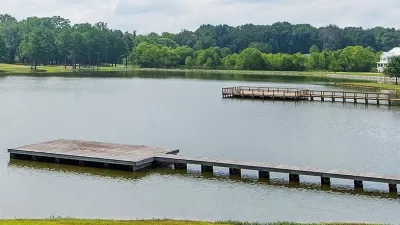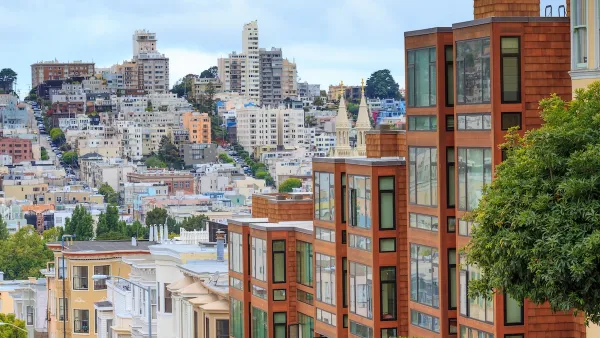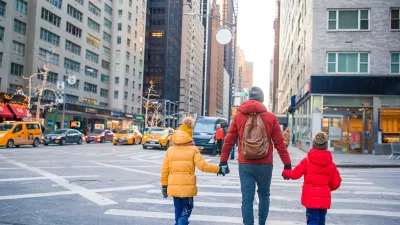Suburban dwellers are increasingly calling for more mixed-use development, walkability, and access to transit.

An article by Patrick T. Brown in Deseret News highlights the Utah community of Daybreak, which Brown argues can serve as a model for the more walkable, sustainable suburbs of the future.
“In July 2020, three-quarters of Americans told pollsters that being within walking distance of destinations like shops and parks were important to them, yet too many new developments still assume a car-dependent lifestyle.” Consequently, developers are starting to build denser, mixed-use suburbs in an effort to provide both more spacious living quarters and access to amenities.
“In contrast to restrictive zoning and land use restrictions that hinder development in many suburbs, Daybreak’s agreement with the city of South Jordan allows the developers to build housing at any density the market can support, with the potential of reaching 20,000 housing units over 4,200 acres.” Daybreak aims to offer housing at different price points and connects to the regional light rail system.
Brown argues that “The success of the Daybreak concept — using denser, traditional styles of development with amenities that attract families and keep housing costs affordable — should be one that spurs similar approaches throughout the country.” Like Paris Mayor Anne Hidalgo’s campaign to make Paris a 15-minute city, American mayors should, in Brown’s view, take an intentional approach to cultivate dense, walkable, developments that buck traditional suburban norms. As Brown writes, “Booming metro areas will appeal to families when homebuilders are allowed to create developments where community life can organically occur.”
FULL STORY: Perspective: Is the future of the suburbs in Utah’s Daybreak?

Maui's Vacation Rental Debate Turns Ugly
Verbal attacks, misinformation campaigns and fistfights plague a high-stakes debate to convert thousands of vacation rentals into long-term housing.

Planetizen Federal Action Tracker
A weekly monitor of how Trump’s orders and actions are impacting planners and planning in America.

Chicago’s Ghost Rails
Just beneath the surface of the modern city lie the remnants of its expansive early 20th-century streetcar system.

Bend, Oregon Zoning Reforms Prioritize Small-Scale Housing
The city altered its zoning code to allow multi-family housing and eliminated parking mandates citywide.

Amtrak Cutting Jobs, Funding to High-Speed Rail
The agency plans to cut 10 percent of its workforce and has confirmed it will not fund new high-speed rail projects.

LA Denies Basic Services to Unhoused Residents
The city has repeatedly failed to respond to requests for trash pickup at encampment sites, and eliminated a program that provided mobile showers and toilets.
Urban Design for Planners 1: Software Tools
This six-course series explores essential urban design concepts using open source software and equips planners with the tools they need to participate fully in the urban design process.
Planning for Universal Design
Learn the tools for implementing Universal Design in planning regulations.
planning NEXT
Appalachian Highlands Housing Partners
Mpact (founded as Rail~Volution)
City of Camden Redevelopment Agency
City of Astoria
City of Portland
City of Laramie





























